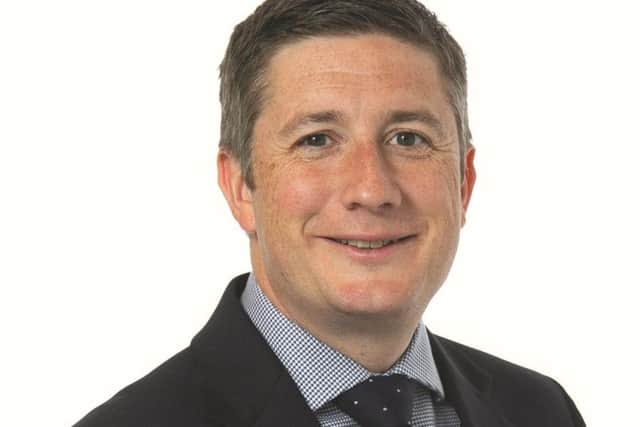How to plan for financial independence


Planning is bringing the future into the present, so that you can do something about it now.” This quote by inspirational American author Alan Lakein succinctly describes the benefits of financial planning.
When asked, we can conjure up the ideal end destination – the round-the-world trip, early retirement, or that true feeling of financial independence. Yet, when we consider the route – the road that will get us to the goal – things become less clear.
This is often the situation for our clients when they first contact AAB Wealth. They have worked hard to build their wealth and know where they wish to go. Yet, how do they get there?


How to make best use of one’s resources, capitalise on available allowances and maximise tax-efficiency? It is not straightforward, with a myriad of tax-traps and continually changing pension legislation, to name but two challenges. Nor is it a one-off transaction – it requires adherence to a robust, stress-tested financial plan, with ongoing expert advice.
However, it can be a very rewarding experience. The peace of mind attained from knowing exactly where you stand, removing complexity from your finances and bringing the future into sight is often an enlightening and comforting process.
So how do you get there? Experience has taught us that a good place to start is to gain a combination of expert tax advice and sound financial planning, delivered in simple, straightforward language.
To showcase this approach in action, a recent example involves a successful executive in the finance sector, married with two children and seeking some advice on a number of tax issues.
The family had a mixture of different assets alongside a rental property, which previously had been their main home. The client was concerned about potential tax consequences for his pension funding, being a member of a final-salary scheme.
Recent changes in the buy-to-let sector, such as the increased capital gains tax on second properties and a reduction in tax relief for mortgage repayments, had also caused frustration.
Over the course of several meetings with our specialist tax team, a variety of actions were implemented – assets were transferred between husband and wife, lettings relief was claimed on the sale of the second property and unused allowance made further pension contributions possible.
The couple managed to improve their tax-efficiency and reduce their annual tax bill by approximately £60,000.
Following a sudden loss of employment, the family’s circumstances changed dramatically. Yes, there was a significant redundancy award, but now, minus the ongoing security of a salary, specific financial planning advice was required – a conversation about the couple’s goals and their newfound situation.
The clients were quite close to their intended retirement age already, so the objective was to evaluate whether or not they could bring their retirement forward – could they walk away from work altogether?
It is often the case that we are unsure when we will retire, but we would very much like to know when we could afford to close the door on that particular chapter of life. This is often referred to as your “financial independence age”.
We considered the couple’s retirement plans in detail – what would they like to do with their time, what holidays would they like to take?
We then explored the numbers – how much were they spending?
What were the pension options? What other assets were held?
Armed with these details, we were in a position to then present back to the clients, offering options and discussing how we could help.
In this case, the husband and wife wanted to know that they would always have the income they required when they chose to retire, with a bit left over to eventually pass on to the children.
These “presentation” meetings are very flexible and enjoyable – we can alter the timing of major life events, such as retirement, and robustly stress-test the overall plan.
For example, what impact would a stockmarket crash have on their investments and thus their income?
The pension situation proved key.
Working with our tax colleagues to maximise funding, the pension was transferred into a more flexible arrangement, allowing access to funds earlier than otherwise possible.
This initial recommendation evolved into the holistic management of other assets which would generate sustainable, tax-efficient income throughout the client’s retirement.
Perhaps more importantly, the client now has a long-term partner in AAB, an ongoing trusted relationship, and the peace of mind to know their finances are well under control.
This is just one specific example which showcases the benefits of an integrated financial advice and tax planning approach.
Regardless of individual circumstances, the core aim of engaging with professional advisors in this area should always remain the same – to protect the value that you have worked hard to generate.
To do this in the most optimal way will require not only an advisor who is an expert in their field – that should be a given – but someone who cares about you and your family’s goals, and who can utilise that expertise to plan the most efficient approach to get you there.
And, as my example has demonstrated, this will likely involve both financial planning and tax advisory expertise. After all, successful fiscal planning is a blend of a focussed investment strategy with a balanced risk and return, wrapped around a set of core objectives within a given timeframe, and placed in the most efficient tax environment.
As financial planning and tax advice are two separate – albeit intertwined – areas, this can potentially mean that two different specialist advisors are required. Therefore, it can pay to engage with a team who offer both a financial advice and tax planning service under the same roof.
Fraser Porter is chief executive of AAB Wealth
OPINION PIECE: Breaking news
Andrew Dines, chartered financial planner at AAB Wealth, just cannot believe what he watches on television these days
Modern life provides us with so much news and information which focuses on the here-and-now, that it is easy to be overwhelmed with the feeling of imminent doom and gloom.
The list of things to concern us is long and worrisome – Donald Trump adopting an increasingly protectionist agenda, a trade war between the US and China, not to mention the fractious Brexit process.
The natural extension of all this concern is to worry about what the impact of all this uncertainty will have on your investments and, in turn, on your future wealth and goals.
The first mistake is to believe that the world is falling apart around our ears. It most
certainly is not. The second mistake is to think that your investments need to be repositioned to mitigate these events.
There are four key reasons why portfolio tinkering is unlikely to be sensible.
One, the present “unprecedented” turmoil is no different to how it has always been. Today’s worries dominate our thinking; but can you remember what you were worrying about a year or two years ago? Probably not. It has ever been thus.
The overwhelming evidence shows the relentless upward trajectory of purchasing power for those patient and disciplined to stay the course.
Two, bad news sells – so don’t ignore the under-reported good news. We are all aware that bad news sells. For example, the Office for Budget Responsibility delivered a “gloomy” forecast for UK growth of “only” 1.9 per cent for 2019. Yet, the economy is still growing.
Remember too that this slowdown comes after a period of growth which has outstripped much of the developed world for the past few years. It is not all bad news.
Three, the futility of futurology. This is the financial markets’ version of astrology. There is a huge industry out there, from the IMF to investment banks, academics and BBC reporters, all peddling their own predictions.
These futurologists have one thing in common – they are almost always wrong and are rarely held to account for their poor forecasts. Take forecasts with a pinch of salt.
Four, the news is already in market prices. It is normal to be worried about the potential impact of what is going on in the world and how this will affect markets.
The reality is that you are not alone. In fact, all active investors have some view on how Trump, Brexit, Venezuela, or the US Federal Reserve will impact bond and equity prices These global, diversified view-points are already reflected in the equilibrium price of securities, agreed freely between buyers and sellers.
Well-structured investment portfolios seek to ensure that any market conditions can be weathered in the future, whatever drives these storms. A highly diversified portfolio, balancing global equity assets with high-quality shorter-dated bonds, is well positioned to do so.
Try not to worry so much. Perhaps you could start by watching the news a little less.
OPINION PIECE: Something to declare
Lynn Gracie, senior tax manager at AAB finds that “duty free” does not apply to assets, investments and income
The world has definitely become a smaller place, but in international tax terms, it is bigger and more dynamic than ever.
It is now commonplace for businesses to employ individuals who are globally mobile,
and many people now plan for a retirement which includes a home in the sun overseas.
People live, work and retire in various countries and therefore have assets, investments and income generated in different tax jurisdictions with complex attendant implications.
This presents significant opportunities for UK non-resident and non-domiciled individuals to develop a tax-efficient approach to their global wealth management. Taking a holistic approach optimises benefits of the various reliefs, allowances and provisions of double-tax treaties.
This can help individuals to legitimately save money without becoming unwittingly non-compliant or exposed to punitive taxes or penalties.
For example, American citizens who remain subject to Us tax on worldwide income despite becoming resident in another country, should always try and avoid investing in non-Us regulated investments, such as ISA’s or personal pensions, which could be taxed unfavourably in the Us.
On the flip side, any US tax-efficient collective investments could also be punitively taxed in the UK.
So integrated cross-border tax advice is vital to ensure that investments, pensions and global income are being correctly managed and properly reported, and that the wider tax planning opportunities are identified.
HMRC now has unprecedented access to vast amounts of information from hundreds of overseas jurisdictions via various automatic exchange of information agreements, and it has been given new powers to charge extraordinarily high penalties for non-declaration and reporting failures.
It is more important than ever before to be certain that worldwide taxes are reported and managed as efficiently as possible and that’s where access to appropriate specialist expertise becomes crucial.
Unfortunately, “duty free” does not apply when it comes to assets, investments and income, and more and more people are realising the importance of knowing – and understanding – their own personal tax implications.
AAB’s Private client International tax team has seen a huge upsurge in demand for cross-border tax planning advice, tax compliance reporting and specialist support to plan for the future.